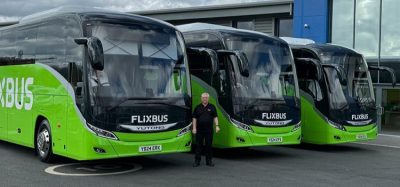Metro: a ticket to opportunity for the rail industry
- Like
- Digg
- Del
- Tumblr
- VKontakte
- Buffer
- Love This
- Odnoklassniki
- Meneame
- Blogger
- Amazon
- Yahoo Mail
- Gmail
- AOL
- Newsvine
- HackerNews
- Evernote
- MySpace
- Mail.ru
- Viadeo
- Line
- Comments
- Yummly
- SMS
- Viber
- Telegram
- Subscribe
- Skype
- Facebook Messenger
- Kakao
- LiveJournal
- Yammer
- Edgar
- Fintel
- Mix
- Instapaper
- Copy Link
Posted: 18 January 2009 | Ken Mackay, Director of Rail and Infrastructure, Nexus | No comments yet
Tyne and Wear Metro owner, Nexus, is to invest £300 million modernising the 30-year-old system, which will include the market-testing of trains and station services. In an interview for Intelligent Transport, Ken Mackay, Director of Rail and Infrastructure for Nexus, explains how the investment programme will provide a step change in comfort and reliability for their passengers.
Tyne and Wear Metro can claim both a significant ‘first’ and ‘last’ in the UK rail industry. It was Britain’s first modern light rail system when it opened in 1980, and it is now the only railway in Britain entirely owned and operated within the state sector. But things could soon be changing. Metro is to be completely modernised in an investment programme worth more than £300 million.
Tyne and Wear Metro owner, Nexus, is to invest £300 million modernising the 30-year-old system, which will include the market-testing of trains and station services. In an interview for Intelligent Transport, Ken Mackay, Director of Rail and Infrastructure for Nexus, explains how the investment programme will provide a step change in comfort and reliability for their passengers. Tyne and Wear Metro can claim both a significant ‘first’ and ‘last’ in the UK rail industry. It was Britain’s first modern light rail system when it opened in 1980, and it is now the only railway in Britain entirely owned and operated within the state sector. But things could soon be changing. Metro is to be completely modernised in an investment programme worth more than £300 million.
Tyne and Wear Metro owner, Nexus, is to invest £300 million modernising the 30-year-old system, which will include the market-testing of trains and station services. In an interview for Intelligent Transport, Ken Mackay, Director of Rail and Infrastructure for Nexus, explains how the investment programme will provide a step change in comfort and reliability for their passengers.
Tyne and Wear Metro can claim both a significant ‘first’ and ‘last’ in the UK rail industry. It was Britain’s first modern light rail system when it opened in 1980, and it is now the only railway in Britain entirely owned and operated within the state sector. But things could soon be changing. Metro is to be completely modernised in an investment programme worth more than £300 million.
The UK Government has also agreed to meet the operating subsidy of the network up to 2019, but on condition that the Operations section is market tested with the private sector for the first time.
The private rail industry, engineering and technology firms – not to mention individuals with the right project management and engineering skills – also stand to benefit from scores of contracts and new opportunities associated with the modernisation programme, which has been branded ‘Metro: All Change’ by owners Nexus.
Metro, which carries more than 40 million passengers a year, will benefit from the re-invigoration of its infrastructure, stations and rolling stock.
Nexus, the local authority Passenger Transport Executive which owns Metro, is well advanced in setting up procurement processes to support this, as well as the market testing programme.
A European Journal notice asking for expressions of interest in the operating contract was issued on 31 October and the tendering process is due to be completed during 2009 with the operating contract starting on 1 April 2010.
This contract will cover all aspects of train operation and maintenance, including responsibility for a three-quarter life refurbishment of the 90 Metrocars that make up the entire passenger fleet. This means the contractor would take over management of Metro’s 22-acre Gosforth depot, though it would remain owned by Nexus. Day-to-day maintenance and staffing of stations is also included, though only a small proportion of Metro’s 60 stations are currently staffed. The contract is for seven years plus an optional two based on performance, and represents a significant opportunity.
Metro operates more than 17,000 train-kilometres per weekday through more than 450 individual services, and approximately 400 staff work in areas of Metro that will form part of the operating contract.
Station and internal train cleaning plus revenue control, which form part of Operations, are already sub-contracted.
“We anticipate keen competition for the operating contract,” says Mr. Mackay. “We are looking for the best possible deal for the taxpayer, but we also want to see genuine innovation with the market challenging what we do and suggesting how it can be done differently and better.”
He dismisses suggestions that there is any significant local opposition to market testing, despite attempts by some unions to campaign on a ‘stop privatisation’ message.
“Nexus has a good relationship with unions within the Metro business and we have kept them fully informed as our plans have evolved, we want to keep up this good relationship as we move forward,” says Mr. Mackay.
He adds: “There was an attempt to launch a campaign against private sector involvement during the summer, but it has not attracted any significant public support or interest and we don’t believe it is going to. This is sensitive because Metro is the last publicly owned and operated railway in England – people in Tyne and Wear feel they own Metro and want to be reassured that will continue.”
Mr. Mackay continues: “But most of all, passengers want trains to run on time and the whole journey experience to be a good one, irrespective of whether it is the public or private sector which provides the service. In the case of Metro, it will be both working in harmony where that provides best value for the taxpayer and better travel for the passenger.”
There is expected to be an in-house bid for Operations from Metro’s current management team, and Nexus are promising the market a level playing field. Nexus will retain control of fare levels and service levels, including first and last train times, within the performance regime it puts in place.
But Mr. Mackay says there will still be sufficient incentive for the private sector when detailed tender documents are issued in early 2009.
Nexus’ own figures show Charter Mark punctuality of 95.57% for Metro during 2007/8, ahead of all franchises regulated by the Office of Rail Regulation. Given this, does Mr. Mackay think a successful bidder, while perhaps able to deliver better value, will find it difficult to match the current level of performance?
“Just because current punctuality is ahead of other rail operations, it does not mean, in the context of Metro which is different to the national rail network, that it is necessarily high enough. We are looking for innovation from the private sector as well as excellent performance and value for money.”
Mr. Mackay adds: “We are seeking potential contractors who will rise to the challenge that Metro’s current excellent performance presents, and not to be intimidated by it. But at the same time, we want to see what other improvements an operator might bring to the way we design and build our train operations.”
The UK Department for Transport will be a party to the whole tendering process, as Nexus itself determines the winning bidder.
Away from the market testing of operations, the capital investment Nexus is planning is clearly very exciting for Mr. Mackay, who has capped a distinguished career in the UK rail industry by securing the long-term future of Metro.
The £300 million capital programme that makes up the major part of ‘Metro: All Change’, could prove equally enticing for the rail industry, not to mention related sectors.
“An investment programme as large as ours also creates many opportunities for the individual in managing both capital investment and supply contracts,” says Mr. Mackay. “I can promise that Nexus and Metro will be very exciting places to work or be associated with in the years ahead.”
Approximately 100 firms from around Europe were represented at a ‘market update’ event held by Nexus in September in Newcastle, to hear Mr. Mackay and Nexus Director General Bernard Garner, outline their vision for Metro.
The system was first opened in 1980 and has since been extended twice to form a network of 60 stations over 78km. Nexus itself owns 56km of infrastructure with the remainder, between Pelaw and South Hylton through Sunderland city centre, part of Network Rail.
While Metro is less than 30 years old, many structures including bridges, tunnels and viaducts, date back much further – the oldest having been built more than 160 years ago.
The system runs on a 1,500v dc overhead power supply and has its own signalling, power and communications section in Gosforth, Newcastle.
While most of the suburban network is surface level, there are seven underground stations in central Newcastle and Gateshead and a further two in Sunderland on Network Rail infrastructure.
Nexus is to remain the direct owner and manager of Metro infrastructure, and will manage scores of projects within the £300 million investment programme. Included in the programme is the modernisation of all stations, including main underground stations such as Monument, which handles more than 10 million passengers a year.
Metro’s communications systems, including public address and CCTV functions, are to be completely replaced in a programme costing up to £30 million.
A similar sum is earmarked for the maintenance of approximately 200 structures on the system identified within Nexus’ detailed asset renewal plan.
Upgrade of track and overhead power lines will cost up to £45 million over the nine year lifespan of Government investment from 2010 to 2019.
Prior to this, Nexus is already investing heavily in the most urgently-needed modernisation projects. These include the £15 million replacement of Metro’s 249 ticket machines to introduce credit/debit card and note transactions for the first time. Procurement is already well advanced with Nexus seeking to ensure the new machines will be smart-card enabled as new ticketing enters the public transport market in North East England in the years ahead.
More than £30 million is also being spent on stations: Simonside, the 60th on Metro, opened in March 2008 after a £3.2 million build part-funded by the European Regional Development Fund.
A £20 million redevelopment of Haymarket, serving Newcastle’s main shopping district and two universities, will be complete in autumn 2009. The new station, used by six million passengers a year, will have a third escalator and completely remodelled platforms and concourses. The new design, including tunnel walls stripped back to reveal their original circular shape, forms a blueprint for other stations both underground and at surface level.
Work also continues on a £7 million Nexus-funded refurbishment of platforms at Network Rail’s Sunderland station, shared by Metro, Northern and Grand Central intercity trains.
Metro’s distinctive brand, including the Calvert signage font designed by renowned transport typographer Margaret Calvert, is to be retained.
The funding Nexus has secured so far covers Phase 1 and Phase 2 of its long-term ‘Metro Re-invigoration’ programme.
A third phase is planned after 2019. This will include the replacement of the 90-strong Metrocar fleet and with it the system’s signalling system, estimated at more than £210 million at today’s prices.
It is this long-term vision for Metro, at the heart of the conurbation’s public transport networks, which Nexus believes makes it a good investment for the Government – a vision which it believes will outlast the current economic uncertainty. This is important as it looks forward to seeking further capital as 2019 approaches.
Mr. Mackay explains: “Metro is vital to the North East economy now and our case for re-investment rests on that just as much as the role it plays supporting re-generation. We are modernising for the long-term and delivering benefits that will last through several economic cycles.
He adds: “If anything, passenger numbers have grown since the so-called credit crunch began as people choose public transport as a cheaper alternative to the car. Metro will remain vital to the economy as we approach Phase 3 funding – by then the need to restrain car use for environmental reasons will only become more pressing, and land use policy might be more focused on using sites well-served by sustainable transport.”
Mr. Mackay continues: “Phase 2 is all about establishing an improvement in the overall condition of the asset by undertaking some real engineering renewals that will stand the Metro in good stead for a long time to come. This will continue throughout Phase 3 when the really big investments in new signalling technology and new trains will take place.”
“Nearer 2019, we will have a much better idea what sort of capacity our network will need in the 2020s and 2030s,” suggests Mr. Mackay. “We could well be looking for an uplift on the present day, achieved either through a larger fleet, smaller headways or both.”
Metro is recognised as the backbone of the public transport network in Tyne and Wear, with one in four households within 1,000 metres of a station.
Beyond it, Nexus continues to promote an ambitious vision for bus and heavy rail, which it intends should link in better with Metro to rebuild the integrated transport network for the Newcastle and Sunderland conurbation fractured in the 1980s.
Bernard Garner, Director General of Nexus, said: “The type and quality of public transport available in the decades ahead will become much more significant as growing pressure on our road network, pollution and fuel prices make people think again about how they travel.”
He adds: “Reliable public transport, which people want to use, will be vital if our region is to have a flexible, versatile and competitive economy. ‘Metro: All Change’ will provide a step change in comfort and reliability for our passengers. Now that the Government has approved our plans, Nexus will have to grow to respond. Re-invigoration creates new opportunities for experts in rail project management, procurement and contracts who want to be part of one of the UK’s most exciting infrastructure projects.”
Related topics
Business Models, Fleet Management & Maintenance, Ticketing & Payments
Issue
Issue 6 2008
Related organisations
Nexus
Related people
Ken Mackay








